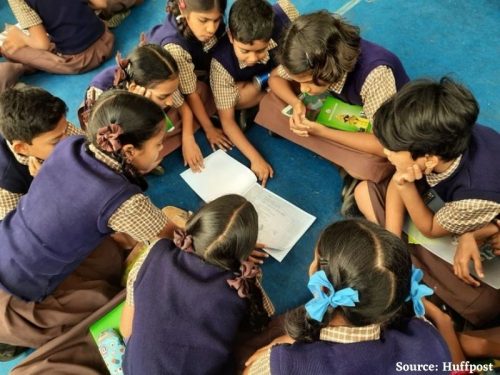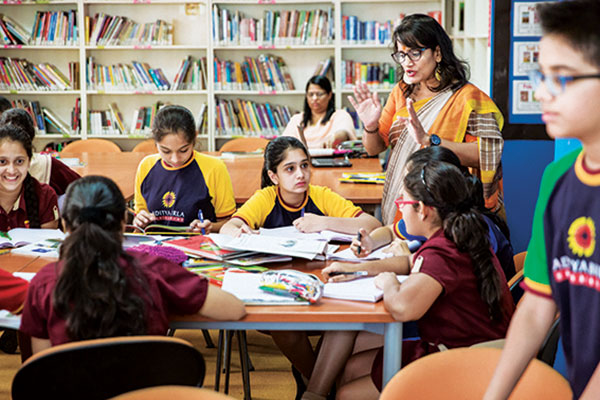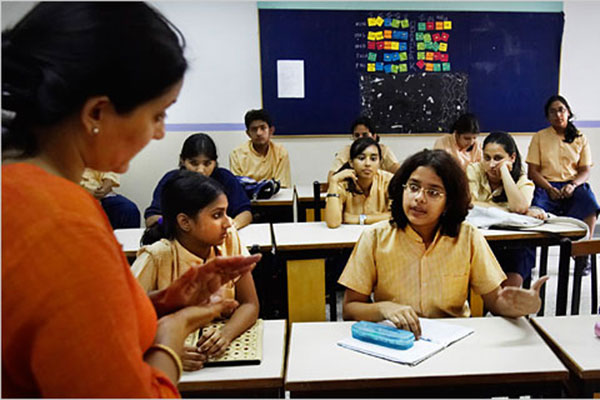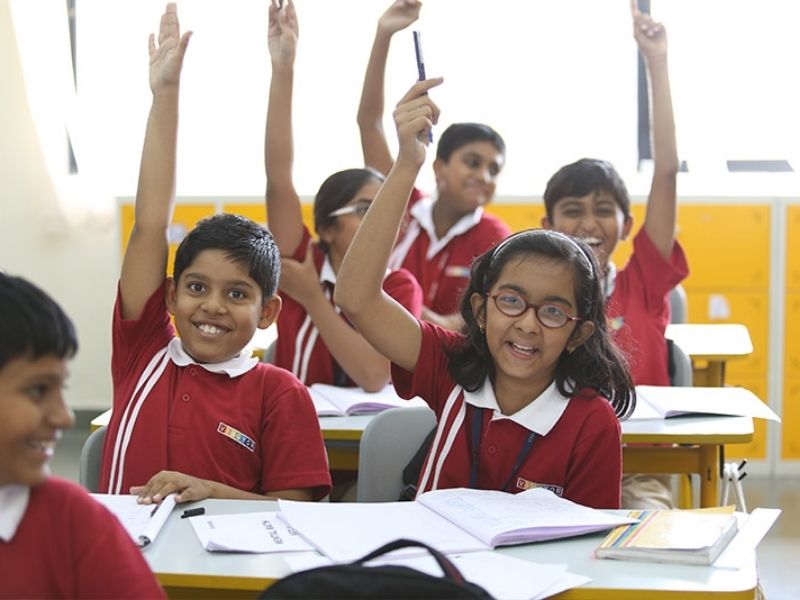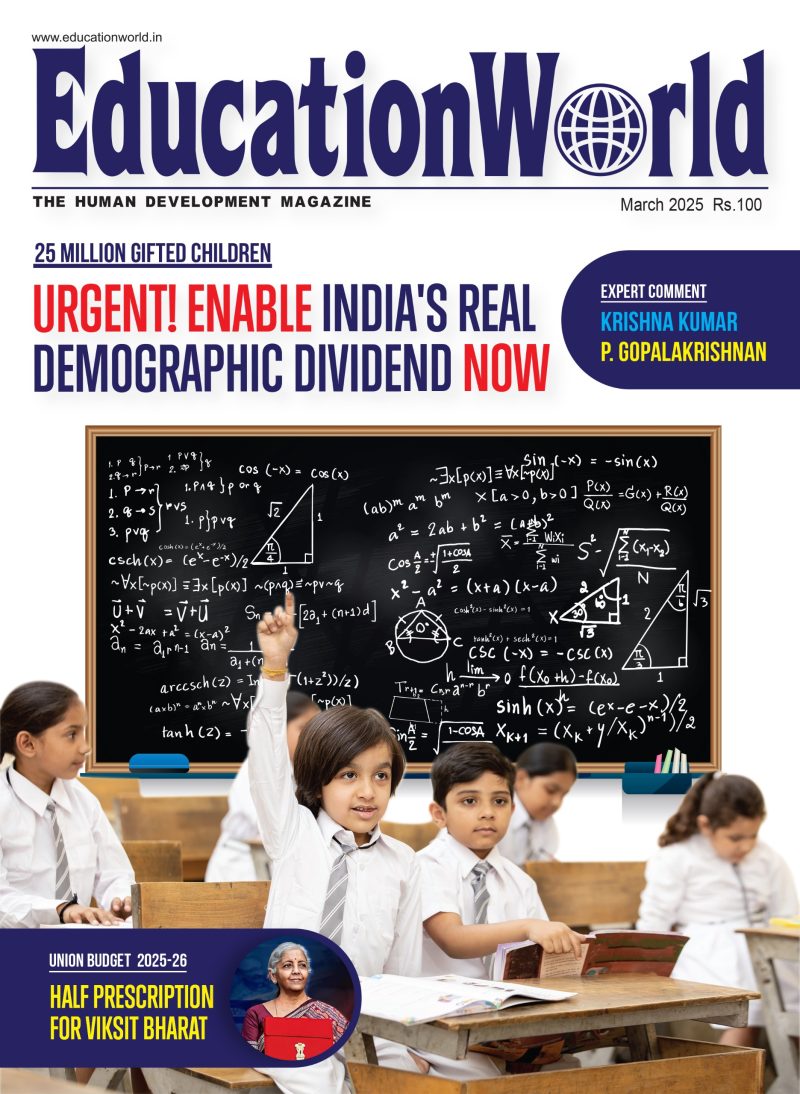Resources
Teachers Resources
Institutional quality circles basics
One of the great questions which confronts governments, school managements and educationists around the world, is how can schools transform themselves to unlock the potential of every student and teacher? How can government efforts to improve learning outcomes be combined with their obligation to put citizenship on the curriculum, promote healthy schools and place positive behaviour high on their agendas?
Teachers Resources
Lessons from the life of Michael Jackson RIP
There must be few people in the world who didnt feel a sense of loss on June 25 when pop icon Michael Jackson (1958-2009) died. Emotions ranged from great sadness to anger about a ‘life less lived and wasted talent. I dont want to focus on the controversy that surrounded his life and death, but to derive some learning from what fractured and tortured his soul and led to a life fraught with insecurity and unhappiness in spite of all his acclaimed success.
Teachers Resources
Bringing nature into the classroom
Within India's 5 million-strong school teachers community, there is an urgent need to acknowledge Mother Nature as the greatest teacher and to learn from her example. She speaks not a word in any human language, and yet everything in nature inspires humanity to seek and learn, engendering awe, mystery, and an enthusiasm for uncovering the truth behind her workings, her creations, her cycles and her balance. As such, she is the primal teacher archetype of inspirational teaching and the root of all scientific enquiry. Hence, science has been defined as "mankind's attempt to understand nature”. The great scientist Albert Einstein expressed it more dramatically stating, "We still do not know one thousandth of one percent of what nature has revealed to us".
Teachers Resources
Promote global citizenship values
The recent attacks on Indian students in Australia have evoked shock and dismay within all sections of the populace in India, and the academic community in particular. The emergence of this phenomenon calls for serious debate to analyse its causes and effects and evolve policies and strategies for creating safe and secure environments for Indian students driven to study abroad by a debilitating domestic higher education system.
Teachers Resources
Teaching English as a second language
Is English India's first or second language? For a minority of Indians who have had the good fortune to be educated in the countrys 11,000-plus elite CISCE and CBSE English medium schools it is, clearly, the first language. For the rest of the population, including children who attend state board affiliated vernacular and so-called English medium schools, the status of English is ambiguous. I say ‘so-called, because most of these schools are only nominally English medium institutions. Their lingua franca is the local language, or the mother tongue.
Teachers Resources
Sex education: Unwarrantedly taboo subject
Sensational reports highlighting widespread sexual abuse of children by teachers, care givers, care providers and neighbours which have been appearing in the media with increasing frequency of late, suggest that children are becoming increasingly vulnerable in Indian society, which is experiencing rapid structural changes in demography and economy. The pressures of urbanisation, accelerated rural-urban migration of families in search of work and livelihood, changing societal mores and traditions, altering lifestyles are some of the factors which have cumulatively impacted behavioural norms in Indian society, leading to the rising incidence of crimes against children.
Teachers Resources
Waiting out the recession
The financial crisis that originated in the bursting of the sub-prime housing loan bubble in the US last year, has now blown into a worldwide phenomenon of epic proportions. With the economic slowdown having bruised and battered the banking and finance sector and IT companies previously regarded as rock solid, campus recruitments have slowed to a halt with key industry players opting out of on-the-spot hiring exercises.
Teachers Resources
Declining value of foreign MBAs
Despite India boasting over a thousand B-schools, some of whom are rated and ranked among the best in the world, most graduates who aspire to corporate careers yearn to do an MBA abroad, especially in the US, UK or Australia. Well aware of this national aspiration, many foreign B-schools have established offices in India and stage pricey promotional programmes in five-star hotels to ‘sensitise youth about the great globally cherished MBAs they offer.
Teachers Resources
Encouraging multiple intelligences
Farah, the schools star athlete was devastated. This class VIII student had been assessed a below-average performer and placed on academic probation. She had been barred from sports and directed to dedicate all her time to the pursuit of academic excellence. She felt inadequate for failing to measure up to her schools perception of intelligence.
Teachers Resources
Grave human rights violation
Dr. Mithu Alur (founder chairperson of the National Resource Centre for Inclusion, Mumbai)
Teachers Resources
Innovating for real teaching-learning
Vaidya Nathan, Chennai-based founder-CEO of Classle Knowledge, an education empowerment enterprise
Teachers Resources
Mending engineering education
- Amit Bansal is founder-director of PurpleLeap, a Bangalore-based training company
Teachers Resources
Paradigm shift in classroom interaction
Somewhat belatedly but fortunately, the past decade has witnessed a radical shift in the way teaching is managed in classrooms around the world. The focus of the classroom has now become the student rather than the teacher.
Teachers Resources
Social media and learning outcomes
The new ‘information age is characterised by our ability to transfer knowledge and information freely.All of us have been touched in some form or the other by the power of the internet.From the mundane, in the form of booking railway tickets, to the truly exotic, by way of purchasing commodities on the internet, we have witnessed the ease with which the internet has pervaded our lives. The tools of information and communication technology (ICT) such as computers, networking cables, satellites are all significant drivers of the emerging global economy.
Teachers Resources
Support community colleges growth
The Indian economy has changed significantly in the past decade resulting in corresponding change in the nature of work and demand for skills. While more than half of Indias GDP is contributed by services, more than two-third of the population is still employed — or more accurately under-employed — in the agricultural sector.
Teachers Resources
Teachers awake, arise
India is poised at a very critical point in time and history, when we need to analyse whether we are moving in the right direction, and if not, why not. There is far too much moral and ethical decay in our society and even though the world is gradually emerging from the recent economic turmoil, globally people are unhappier than before.
Teachers Resources
The IB curricular advantage
"A great school will educate its students not merely to be personally successful but also to use their gifts to build communities and enhance the common good to levels beyond our dreams."— H.H. Agha Khan
Teachers Resources
Towards inclusion in school education
The Right to Free and Compulsory Education Act, 2009 (aka RTE Act) which was unanimously passed by Parliament in August last year and became operational on April 1, has aroused strong passions within Indian academia and especially within India's estimated 100,000 private schools.
Teachers Resources
Unlocking every learner’s potential
This Teachers Day (September 5), I was reflecting on what it means to be a teacher, and wondered if I could distil the essence of the profession into a single expression. Suddenly the word locksmith emerged. Within moments, my mind was inundated with similarities between teachers and key masters.











